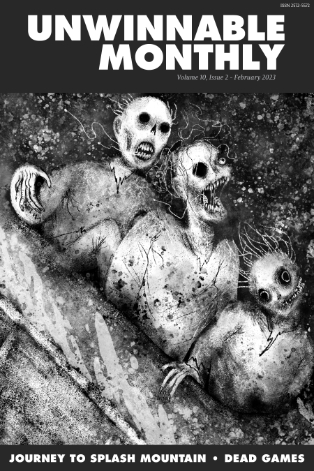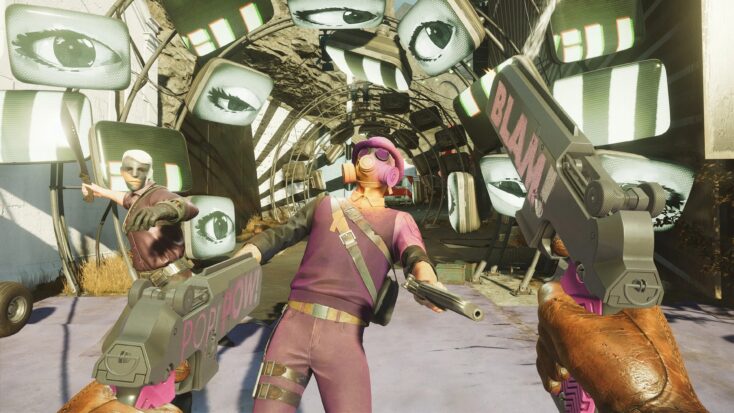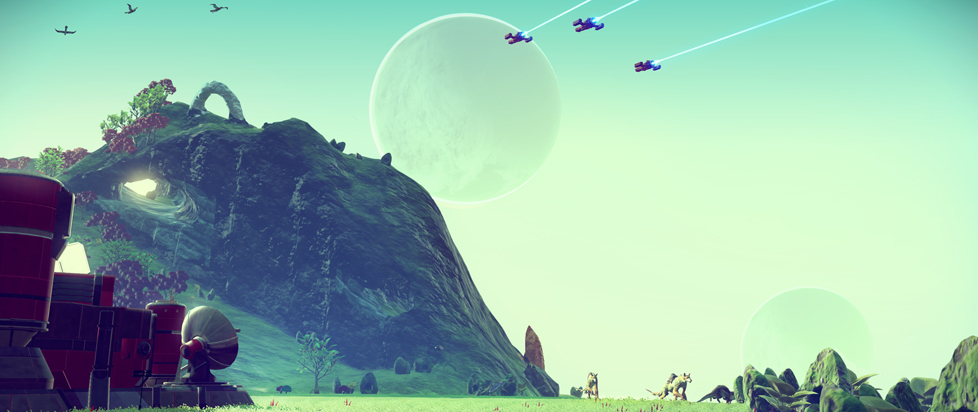
Learning to Love Roguelikes with Deathloop

This column is a reprint from Unwinnable Monthly #160. If you like what you see, grab the magazine for less than ten dollars, or subscribe and get all future magazines for half price.
———
Where videogames meet real life…
———
Arkane Studios’ Prey and Dishonored 2 are my two favorite games from the PlayStation 4/Xbox One era. I love immersive simulators perhaps more than any other genre and their approach to the form is second to none. After Microsoft acquired the French developer as part of their deal with Bethesda, I almost bought an Xbox Series X instead of a PlayStation 5 (though their upcoming Xbox exclusive Redfall does look tempting).
I’m certain to enjoy a good narrative first-person adventure. These games click with what I enjoy from the medium: choice, exploration and narrative. Yet some of my other favorite games are ones that pushed me to appreciate genres that I didn’t quite get before. For example, The Legend of Zelda: Breath of the Wild and Horizon: Zero Dawn taught me how to love open world design. On the opposite end of the spectrum, Outlast showed I could endure (and enjoy) tense terror and gore.
Until recently, roguelikes fell firmly in the “not for me” category that open world and horror titles once occupied. While I love side-scrolling adventures (and as much as I realize my opinions on the game could be considered blasphemous to some), I learned this when I couldn’t get into Dead Cells. I wanted to see what would come next without repeating the same segments in a grinding sort of timelapse. It’s excellent at what it’s trying to be, but what it’s trying to be never held my attention for long.
As an immersive sim from one of my favorite developers, Deathloop should be a sure bet for my gaming dollar. But as an immersive sim with roguelike mechanics? That’s an interesting proposition but one that I assumed would be Dead Cells all over again for me personally; a critically acclaimed game that I should like but don’t. So, when I saw it show up on PlayStation Plus, it felt like it was daring me to give it a chance. Since the cash stakes were low, that’s exactly what I did, and it rewarded my curiosity by destroying my expectations.
Deathloop is deceptively intricate. Without diving too deep into details, the game takes place on the island of Blackreef where time resets every day at midnight. In its opening scene, protagonist Colt Vahn wakes up on the beach, unsure of who he is or where he’s at. His mission is to escape its endless cycle by killing a series of seven scientists and cultists controlling the island. The order and means of doing so is left up to the player.

On paper, Deathloop’s time loop-based progression structure sounded disappointing in the previews I had read. Relative to Prey‘s sprawling space station Talos 1 or Dishonored 2‘s oceanside city Karnaca, Blackreef seemed comparatively constrained. Having players backtrack around a confined space felt like padding for length and I assumed they had to have cut corners to ship within the PlayStation 5 launch window. How would the Arkane approach to narrative design and exploration fit in a game where you play through the same day in an endless rotation until you complete your goals?
Unsure of what I was about to play, I pressed onward anyway, thinking I’d last about an hour before losing interest. From the beginning though, the game’s movement and retro-futurist aesthetic felt like Arkane, keeping me hooked long enough to make it through the opening tutorial (which does an exceptional job explaining how the game’s progression structure works). Certain events trigger at specific times of day, impacting strategy in ways that most first-person shooters don’t ask one to consider.
Before long, I could feel Deathloop getting its hooks into my mind. Instead of reflexively wanting to quit, I felt compelled to see what was next. Each time I played, I’d stay up a little later than usual, just to try one more run. It’s been a while since a game has held my attention quite like Deathloop has, especially one I was skeptical about. It was so far, so good after that first hour then, and it didn’t take much longer than that to realize that all of my assumptions about Deathloop were off base.
So, what made Deathloop click where Dead Cells didn’t? My theory is that where Dead Cells rewards manual dexterity, Deathloop rewards curiosity (though to be fair, I never stuck with Dead Cells long enough to know if it really is more about precision platforming than exploration). Each run is an opportunity to get a new piece of information and put part of the plot’s mystery together. There’s always another note to gather, an audio log to uncover, or a unique angle to a puzzle to stumble upon. Without those strong narrative and investigative components, there wouldn’t be enough to keep me compelled.
Instead of feeling limited by the size of its map, Blackreef also hides a surprising level of depth. As you dig deeper into its secrets, it reveals that there’s much more to explore than what’s on the surface. What looks limited at first soon proves to be anything but, and rather than feeling like a cheap trick to pad for length, Deathloop’s timeloop-based structure works by consistently revealing new things in familiar places.
Deathloop ultimately succeeds by bridging the gaps between two genres while challenging my assumptions about them both. The game is a technical achievement, one that required new hardware to innovate on old mechanics and play with them in interesting ways. Smart, substantive and subversive, it’s everything I didn’t know that I wanted it to be, and the things I thought would be off-putting are what make it tick. Repetition is a means of finding rhythm and finding new things within that rhythm. Not a circular means of spreading too little content across too large of ambitions.
Having learned to appreciate roguelikes, I’m thinking I’ll give Dead Cells another shot. Maybe give it enough time to prove me wrong again. All I have to lose is tens of hours of my time, but what I stand to gain is probably worth at least that much.
———
Ben Sailer is a writer based out of Fargo, ND, where he survives the cold with his wife and dog. His writing also regularly appears in New Noise Magazine.




